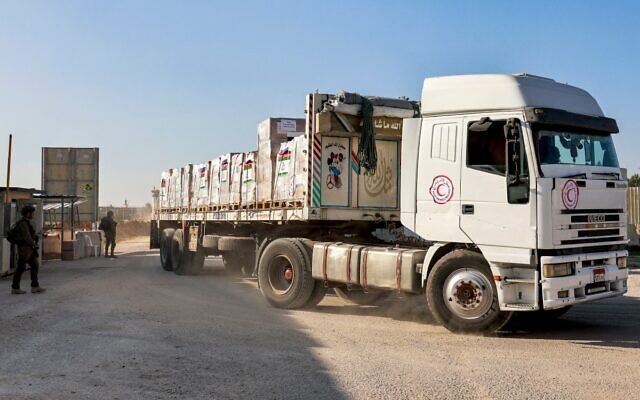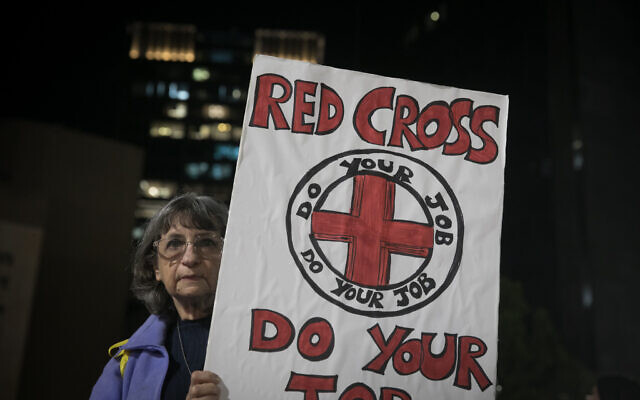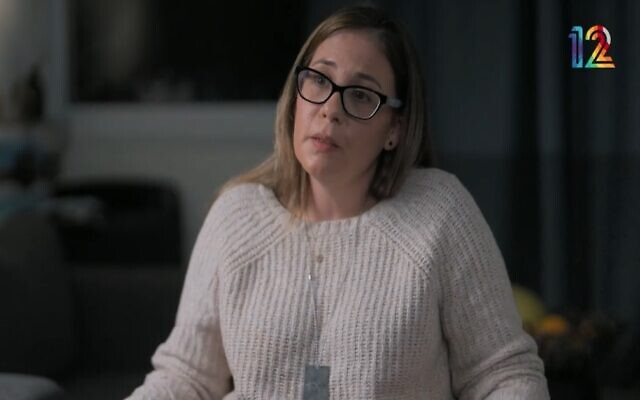



While expressing relief Wednesday at the anticipated delivery of long-awaited medications to the hostages in Gaza, some Israeli doctors highlighted the potential dangers for the hostages taking the medicines — even ones they have habitually taken for chronic conditions — without proper medical care and supervision. They also warned that some of the hostages have been in life-threatening medical danger from the time of their abduction on October 7.
“Restarting medications after such a long period of malnutrition, lack of sleep and sunlight could require dosage adjustments that only a qualified medical professional would be knowledgeable about and could guide a patient on,” said Prof. Alon Hershko, chair of one of the medicine departments at Hadassah Medical Center.
Dr. Itay Pessah, director of the Edmond and Lily Safra Children’s Hospital at Sheba Medical Center, said the situation was a double-edged sword. “These medications are lifesaving, but on the other hand the hostages are in worsened conditions and need regular follow-up by medical professionals,” said Pessah, who treated some of the hostages released in a deal brokered by Qatar and Egypt in late November.
Hershko clarified that getting the medications to the hostages is critical no matter what. “It’s suboptimal if it is only the medications and not also medical care, but we are talking about people with illnesses like diabetes, renal failure, and congestive heart failure, just to name a few,” Hershko said. “Some of these people can only survive a day without their medication. Others can survive longer but suffer serious complications,” he said.
Pessah gave the example of hostages with thyroid problems who must take a hormone called thyroxine. “These people need to be followed up and the level of the hormone in their body monitored regularly,” Pessah said.
Qatar formally announced on Tuesday its successful mediation of an agreement between Israel and Hamas that would see medication delivered to the hostages in Gaza. France also played a role in the deal, which will provide three months’ worth of medication for chronic illnesses for 45 of the hostages as well as other medicine and vitamins.
The shipment of medications, including medicines for Gazans, arrived Wednesday in Egypt. Disagreements over security clearance delayed its transfer to the Strip.
Senior Hamas official Moussa Abu Marzouk said that for every box of medicines provided for the hostages, 1,000 boxes would be sent in for Palestinians. The deal also includes the delivery of humanitarian aid to residents of the Hamas-run coastal enclave.
He also said that the International Committee of the Red Cross would deliver all the medications, including those destined for the hostages, to hospitals serving all parts of Gaza.
There has been no public indication as to whether the hostages would be brought to the hospitals for medical attention, or whether Gazan or Red Cross medical staff would take the medicines to where the hostages are being held.
More than 130 hostages (some no longer alive) remain in Gaza. Many suffer from chronic illnesses, and some were wounded as they were abducted or in captivity and it is unknown whether they received proper medical care.
Since October 7, Israel has demanded that the hostages be provided medical attention and medications and has sharply criticized the Red Cross for not reaching the hostages and providing the care that is dictated by international humanitarian law.
A week after the brutal kidnappings, the medical and resilience team of the Hostages and Missing Families Forum gave the Red Cross a detailed document listing the acute and chronic health conditions of all the hostages, roughly 240 at the time, along with the names of the medications they take regularly.
The Red Cross refused to accept packages of medicines packed by the team, the Israeli government, and individual families intended to be delivered to the hostages.
Pessah said that some of the released hostages recounted that they had initially been asked by their captors what medications they took and were given some. However, the supplies soon ran out as the healthcare situation in Gaza deteriorated.
This was corroborated by Soroka Medical Center nurse Nili Margalit in interviews, including a television interview with Israel’s Channel 12.
Margalit was herself taken captive and tended as best as well as she could to elderly hostages with chronic illnesses who were with her. She was released on November 30.
Related: Nurse who treated elderly while in captivity says hostages in ‘impossible conditions’
Prof. Hagai Levine, head of the medical and resilience team of the Hostages and Missing Families Forum, said he was cautiously optimistic.
“The delivery of the medications has not happened yet, but when it happens, it will serve as a shimmer of light in the darkness,” he said.
According to Levine, the starting point for the hostages must be their current condition, which includes the complications they have developed in captivity.
“Each hostage has many medical needs. They need Red Cross medical professionals to visit them and be checked. They need their medical history reviewed, physical examinations, and various tests. Only then can the course of medical treatment they need now be determined,” Levine said.
“And this is only a [initial] step before they are returned home and undergo proper medical treatment and rehabilitation here,” he added.
Pessah said he hoped there was some medical professional on the other side who would “pretend to be a human being and treat these people.”
“We must continue to push for proper medical treatment and medications for the hostages, but the only way out of this is to bring them home now,” he said.




